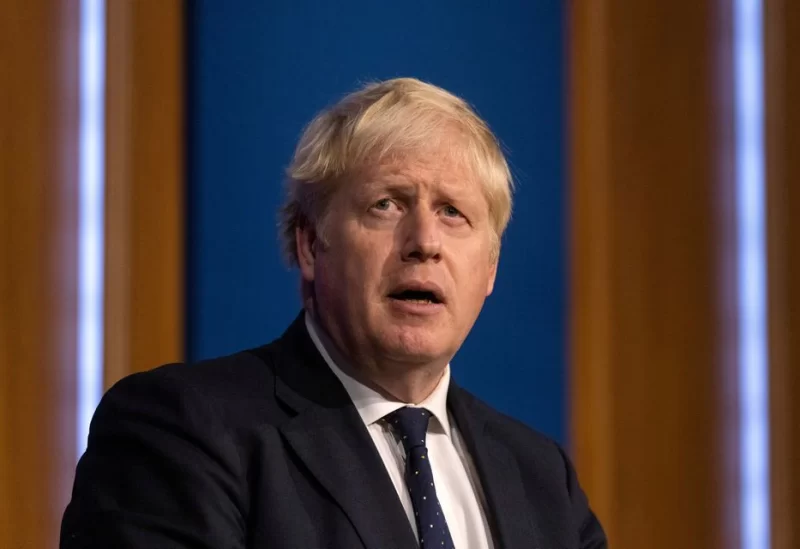
Britain's Prime Minister Boris Johnson holds a news conference on a winter COVID-19 plan in the Downing Street Briefing Room in London, Britain September 14, 2021. Dan Kitwood/Pool via REUTERS/File Photo
On Monday, British Prime Minister Boris Johnson’s “living with COVID” proposal, which would eliminate coronavirus limitations and reduce access to free testing, prompted 11th-hour criticism that it was too soon and would leave the UK susceptible to new viral variations.
While Hong Kong constructs isolation units and Europe maintains social distance and vaccination laws, Johnson is working to eliminate any pandemic requirements that restrict personal liberties, such as self-isolation following a positive COVID-19 test, in England.
He will lean even more on the rollout of booster vaccines, with the government offering extra booster doses to the most vulnerable.
But the plan to ditch remaining legal restrictions – a priority for many of Johnson’s Conservative Party lawmakers whose discontent over his scandal-ridden leadership has threatened his grip on power – ran into difficulty just hours before he was due to launch it.
A cabinet meeting of top ministers was delayed just before it was supposed to sign off on the new strategy, and the leaders of Scotland and Wales – both sharply critical of Johnson’s rule – said the policy would make it harder to tackle new coronavirus variants in a timely way, heightening risks to the public.
“Testing has played a pivotal role in breaking chains of transmission and as a surveillance tool helping us detect and respond to emerging variants,” Welsh First Minister Mark Drakeford said on Twitter. “It’s essential that this continues.”
Just a day after Queen Elizabeth tested positive for the virus, Johnson was expected to drop legal requirements to self-isolate and replace them with voluntary guidance.
The government was also expected to reduce access to free tests, a move that has been blasted by scientists after mass testing helped Britain to spot new variants during the pandemic.
That decision seemed to have a sparked a row between the health and finance ministers before a cabinet meeting over what level of testing should continue and how it should be financed.
A spokesman for Johnson declined to comment on reports of a dispute, saying: “(The cabinet meeting) was postponed until this afternoon so that the prime minister could have both a security briefing and to have further meetings to finalize the plan on living with COVID.”
‘INEXCUSABLE NEGLIGENCE’
Johnson has said he does not want people to “throw caution to the wind”, but that the vaccine rollout means the government wants to move from “state mandation” to encouraging personal responsibility.
Among adults, 81% have received COVID booster shots in England.
The vaccine programme will be extended further as people over 75, care home residents and immunosuppressed people will be offered an additional booster shot. Vaccine advisers said they expected a further booster programme to take place later this year.
“Today will mark a moment of pride after one of the most difficult periods in our country’s history as we begin to learn to live with COVID,” Johnson was expected to say.
The devolved administrations of Scotland, Wales and Northern Ireland have set their own COVID-19 restrictions, but the amount of money they have to spend on testing will flow from decisions made by the UK government.
The first minister of Scotland also made clear that she did not agree with the plan.
“To allow significant dismantling of the testing infrastructure built up in last 2 years would be inexcusable negligence given ongoing risks,” First Minister Nicola Sturgeon said on Twitter.
Medical leaders have urged Johnson not to be “gung-ho” with the nation’s health, and government advisers have said that dropping restrictions could lead to rapid epidemic growth.
Scientists say it is unclear how quickly human behavior will change however, after many people continued to avoid busy areas and wear masks even after previous rules were eased.